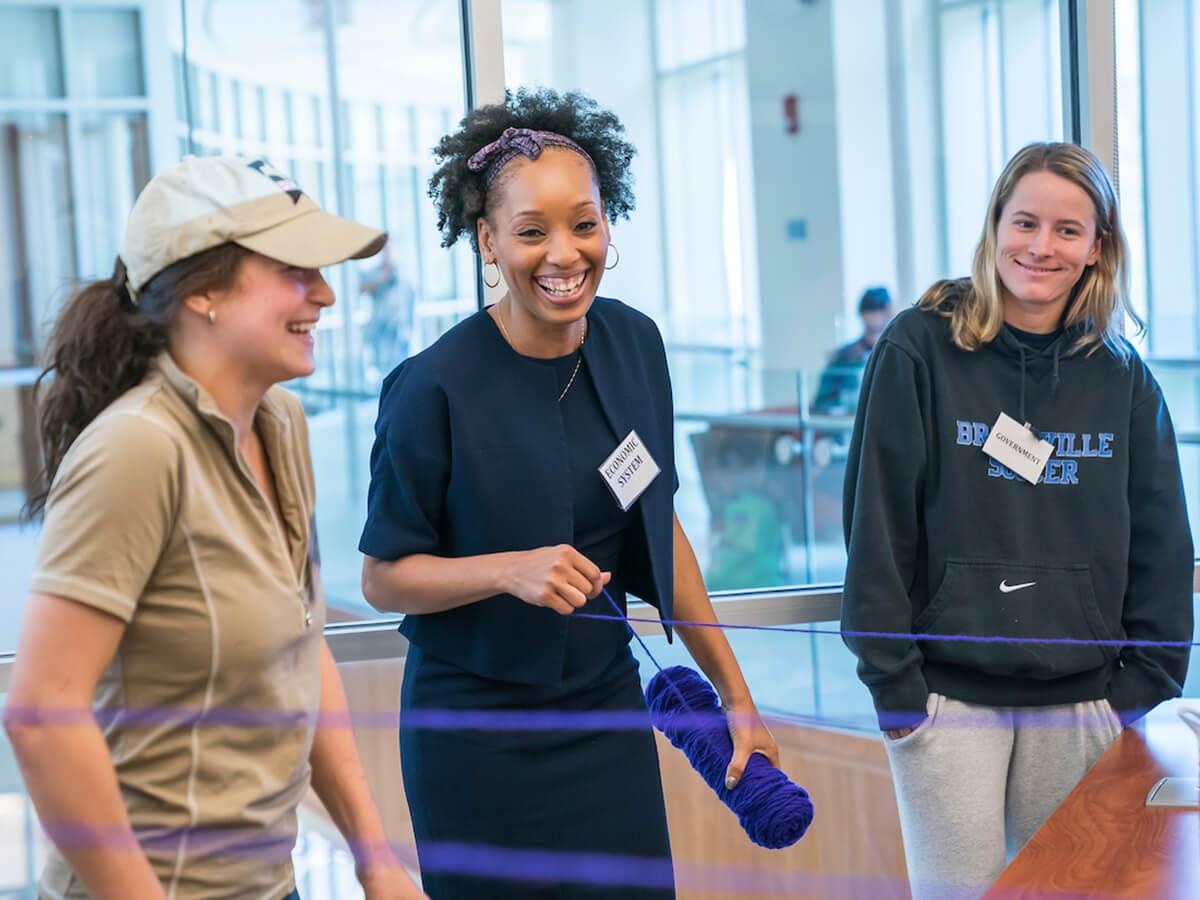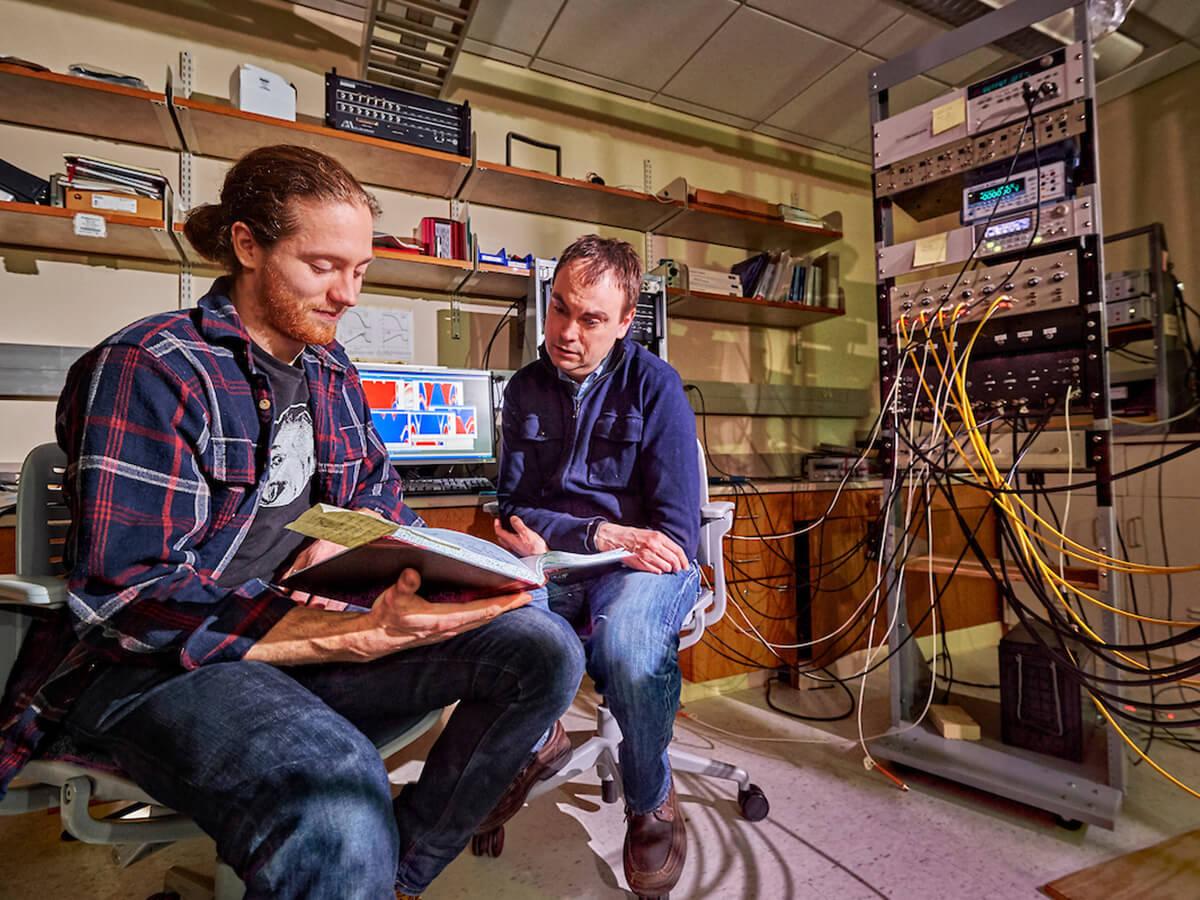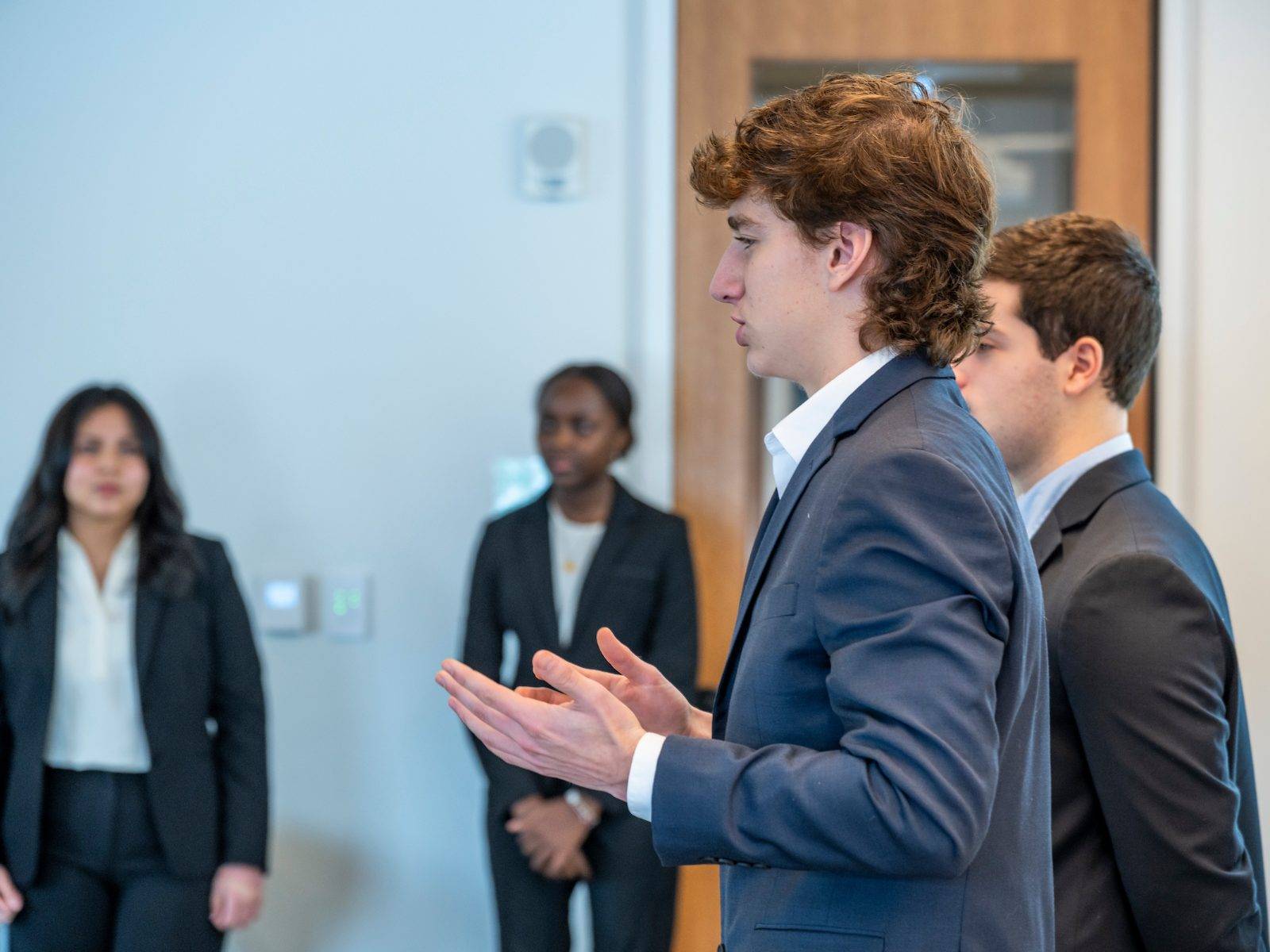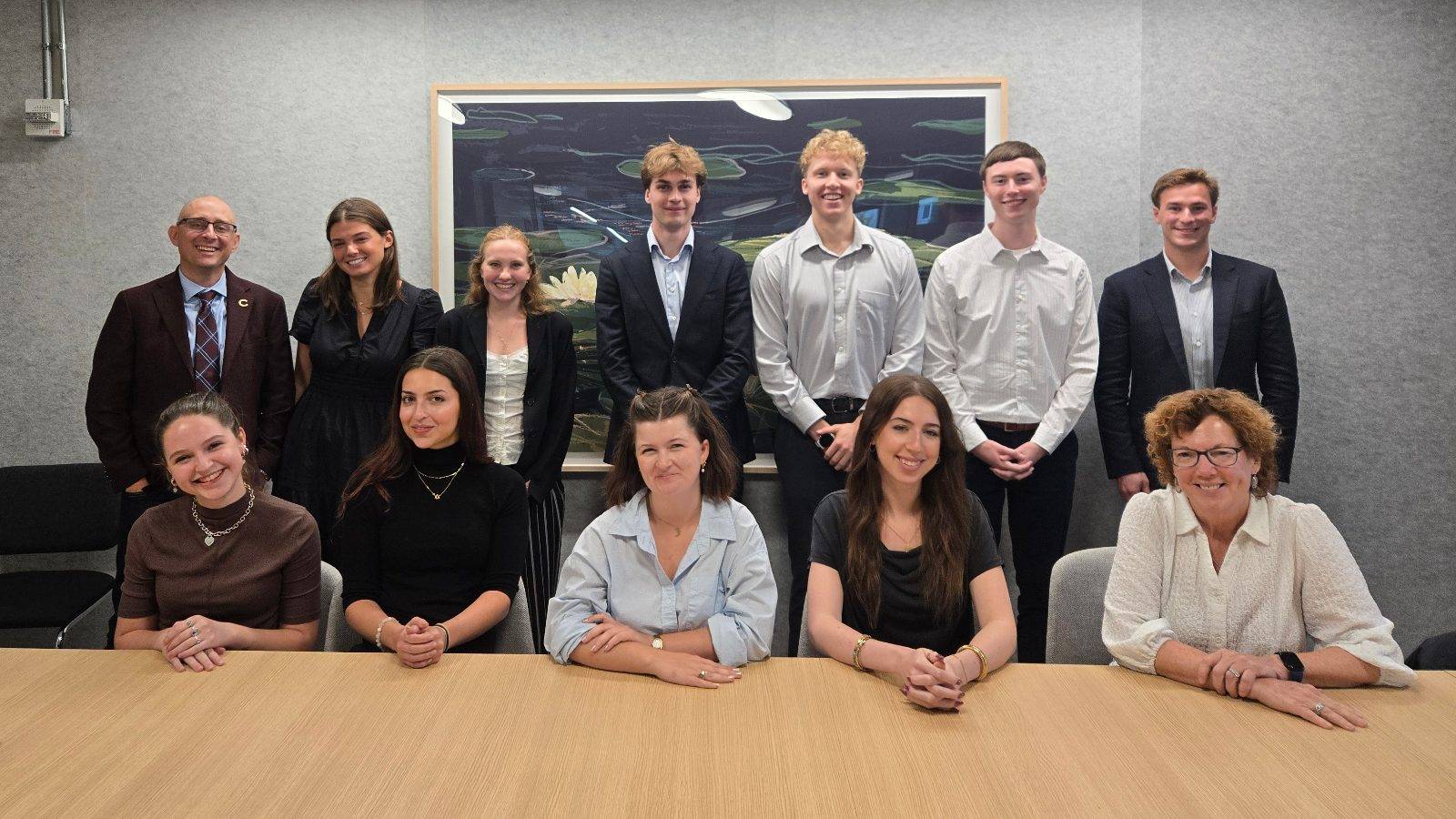Colgate University students pursue intellectual passions under the mentorship of leading experts.
Bachelor of arts degree programs at Colgate University offer a distinctive approach to liberal arts education, exploring a wide variety of subjects rooted in critical thinking, powerful communication, and creative problem-solving.
See What You Can Do
Explore Majors and MinorsSpend Time at College
Visit ColgateTell Us You're Interested
Request InformationCheck Us Out
This is ColgateBy taking one introductory course, my life's path has changed direction and so many doors have opened for me.
Scout Carruthers Class of 2024
An Ambitious Liberal Arts Curriculum

Colgate’s liberal arts curriculum introduces students to the power of rigorous discourse, intellectual curiosity, and the energetic pursuit of knowledge. Students explore evolving links between disciplines. They apply principles of modern thought as they engage with significant questions surrounding the human experience.
Learn more about the 56 bachelor of arts degree programs, the Liberal Arts Core Curriculum, Colgate’s academic departments and faculty, courses, and schedule.
Opportunities for Discovery

Our students develop and apply knowledge. Colgate’s commitment to academic rigor lives in each new discovery.
Explore student research opportunities that allow undergraduates to work directly with faculty members on graduate-level projects that often result in co-authored academic papers. Learn more about a world of off-campus study programs that help students expand their perspective and the context of their learning.
Immersive Learning

Colgate prepares students to think critically and communicate effectively — strengths that will help them succeed in a variety of fields.
Pre-professional programs help students develop relevant, essential skills. They also offer career planning experiences in dynamic fields such as health sciences, communications, law, engineering, and business.


